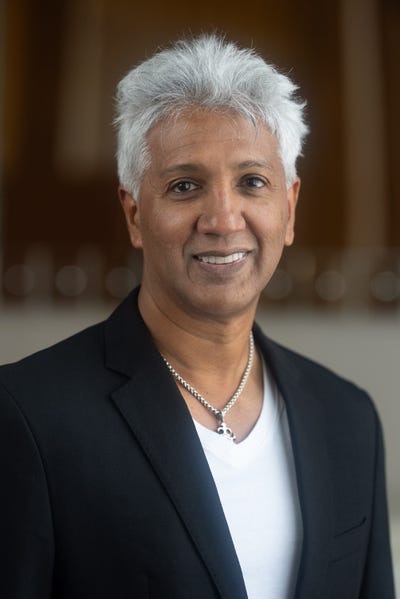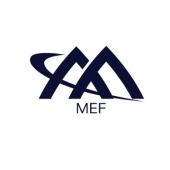How Certified SASE Solutions Build Trust and ResilienceHow Certified SASE Solutions Build Trust and Resilience
Implementing a certified SASE solution improves interoperability and enables an enterprise to take advantage of the latest SASE features and functionality.

Enterprises are increasingly adopting SASE (Secure Access Service Edge) architectures to boost security and simplify operations as they accelerate their digital transformation. SASE’s rapid emergence is transforming the way enterprises protect their data and users.
SASE converges networking and security into a unified, cloud-native platform that streamlines connectivity and access control across distributed environments. By combining these functions, SASE allows enterprises to connect and secure users, devices, and networks from anywhere through a single integrated service. This approach reduces the cost and effort required to maintain a complex infrastructure.
SASE’s centralized visibility, control, and policy enforcement enables efficient management, addresses emerging threats, and reduces potential attack surfaces. Additionally, the cloud-based delivery model improves the performance, scalability, and reliability of networking and security services. By simplifying infrastructure and operations, SASE delivers seamless, secure access experiences across today's hybrid enterprise environments.
As SASE adoption continues to grow, it is important for enterprises to choose certified SASE services and solutions.
SASE: A new paradigm for network security
Adopting SASE’s integrated networking and security approach challenges traditional security paradigms and can necessitate a shift in an organization’s perspective. In addition, the mix of solutions from various vendors across different departments often leads to disjointed thinking and a mismatch of skills between teams. To overcome these challenges, tightly integrating network and security operations and establishing a common language that fosters strong collaboration between these teams is critical to SASE’s success.
In this context, the role of standards is key. The continuous evolution and redefinition of terms have introduced significant confusion in the market. SASE standards define shared terminology, service attributes, and a service framework. Standards simplify the landscape of SASE solutions and empower customers to make more straightforward comparisons between SASE offerings.
SASE standards also accommodate a wide range of deployment models. Cloud security providers can readily adapt their implementations to align with SASE standards, and service providers can do the same. These standards enable them to select SD-WAN and SSE (Secure Service Edge)/ZTNA (Zero Trust Network Access) vendors to build a comprehensive SASE offering. This flexibility empowers buyers to choose the solution that aligns most effectively with their specific enterprise needs.
The role of certification in SASE adoption
SASE certification ensures offerings meet quality, security, and performance requirements and adhere to industry standards. Third-party certification validates that SASE services and solutions work as expected. The rigorous testing verifies security effectiveness and reduces risks while adhering to strict benchmarks provides confidence in reliability and robustness.
Certification improves interoperability between vendors, reduces integration friction, and promotes reliability and consistent operation of SASE architecture. Implementing a certified SASE solution enables an enterprise to take advantage of the latest SASE features and functionality. Certified SASE solutions are typically updated on a regular basis with new features and security updates. Finally, vendor lock-in, which can make it difficult to employ best-of-breed solutions, is eliminated with certification.
By requiring certified offerings, enterprises gain assurance that their SASE implementations will deliver expected capabilities. Certification programs like MEF’s ensure product and service effectiveness and increase market confidence in cybersecurity solutions. MEF's comprehensive SASE certification evaluates solutions against rigorous methodologies and test programs and includes SD-WAN, SSE, and Zero Trust Network Access certifications. It also ensures compliance with MEF SD-WAN, SASE, and Zero Trust Framework standards. MEF-certified solutions integrate seamlessly with other certified offerings, simplifying ecosystem development.
A final word on SASE certification
As enterprises increasingly adopt SASE to unify networking and security, they need assurance that underlying components meet rigorous standards for performance, availability, and security. Certified SASE solutions increase trust in technology, reduce integration headaches, and give architects and security teams peace of mind that implementations meet the highest standards for enterprise-grade performance, protection, and resiliency.
Certification helps to reduce risk, improve security, and gain confidence in the reliability and application performance of SASE services. Enterprises should choose certified SASE offerings to ensure that they meet their specific needs and utilize the full range of benefits that SASE has to offer.
(Editor’s note: This article is part of our regular series of articles from the industry experts at MEF.)
Pascal Menezes is the Chief Technology Officer at MEF. He is focused on SD-WAN, SASE, cloud scale architectures, real-time media networks, Software Defined Networks (SDN), Network Function Virtualization (NFV), and Lifecycle Service Orchestration (LSO). He is a former Principal from Microsoft Skype for Business Global Carrier Group, where he spent close to 10 years working on many real-time media and network technologies. Pascal has worked on five startups with multiple successes, has received numerous industry global thought leadership awards, presented extensively in numerous events worldwide, and currently serves on the Capacity Media Editorial Board. Pascal holds 30+ patents and patents pending and has co-authored many standards in the IETF, MEF, and Broadband Forum (MPLS). See his collection of Network Computing articles here.
About the Authors
You May Also Like






